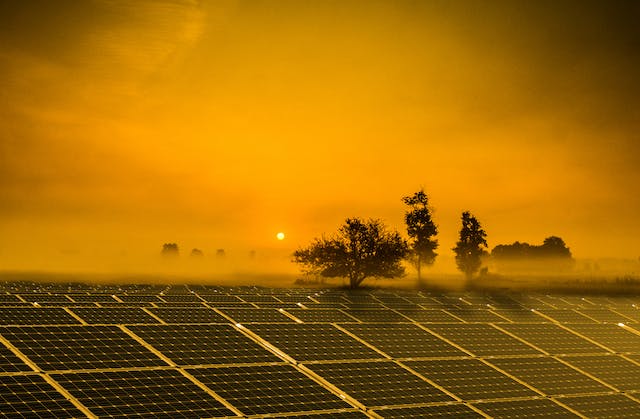
Energy equity refers to the fair distribution of access to and benefits from energy resources, ensuring that everyone, regardless of socioeconomic status, will have equal opportunities and advantages in the energy sector.
In its pursuit of energy equity, GreenTech implemented initiatives to provide affordable solar solutions to underserved communities.
Achieving energy equity has become a crucial goal in the modern business landscape. Beyond mere accessibility, it encompasses the broader notion of democratizing the advantages derived from energy resources. This could involve strategies like creating affordable and sustainable energy solutions for marginalized communities or investing in technologies that bridge the energy gap. The concept recognizes that equal participation in and benefits from the energy sector contribute not only to social justice but also to the overall resilience and sustainability of businesses. As an example of energy equity, picture the partnership between a multinational energy company and a community-based organization in a developing region. The energy company, acknowledges the disparities in energy access and collaborates with the local organization to implement a solar microgrid project. The company provides funding and technical expertise while the community organization plays a pivotal role in ensuring that the project meets specific needs of the local population. Not only does the solar microgrid supply reliable and clean energy to the community, it also creates opportunities for economic development.
Energetická spravedlnost znamená spravedlivé rozdělení přístupu k energetickým zdrojům a výhod z nich plynoucích, které zajišťuje, že všichni bez ohledu na socioekonomické postavení budou mít v energetickém odvětví stejné příležitosti a výhody.
V rámci úsilí o energetickou spravedlnost společnost GreenTech zavedla iniciativy, jejichž cílem je poskytovat cenově dostupná solární řešení komunitám s nedostatečnou péčí.
Dosažení energetické spravedlnosti se stalo klíčovým cílem v moderním podnikatelském prostředí. Kromě pouhé dostupnosti zahrnuje širší pojem demokratizace výhod plynoucích z energetických zdrojů. To může zahrnovat strategie, jako je vytváření cenově dostupných a udržitelných energetických řešení pro marginalizované komunity nebo investice do technologií, které překlenou energetické rozdíly. Tento koncept uznává, že rovná účast v energetickém sektoru a z něj plynoucí výhody přispívají nejen k sociální spravedlnosti, ale také k celkové odolnosti a udržitelnosti podniků. Jako příklad energetické spravedlnosti si můžeme představit partnerství mezi nadnárodní energetickou společností a komunitní organizací v rozvojovém regionu. Energetická společnost si uvědomuje rozdíly v přístupu k energii a spolupracuje s místní organizací na realizaci projektu solární mikrosítě. Společnost poskytuje finanční prostředky a technické znalosti, zatímco komunitní organizace hraje klíčovou roli při zajišťování toho, aby projekt odpovídal specifickým potřebám místních obyvatel. Solární mikrosíť nejenže poskytuje komunitě spolehlivou a čistou energii, ale také vytváří příležitosti pro ekonomický rozvoj.
English Editorial Services’ mission is to assist international businesses and organizations of all sizes to communicate clearly, correctly, and persuasively with their business partners and target audiences.
Simply subscribe to receive our Business Term of the Day at no charge to your inbox each business day, with explanation in English and Czech.



English Editorial Services’ mission is to assist international businesses and organizations of all sizes to communicate clearly, correctly, and persuasively with their business partners and target audiences.
Simply subscribe to receive our Business Term of the Day at no charge to your inbox each business day, with explanation in English and Czech.

